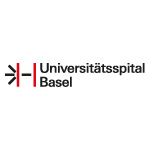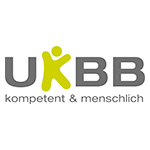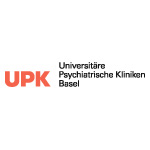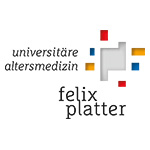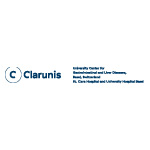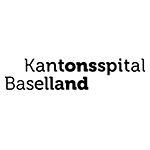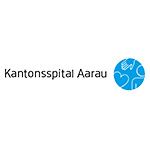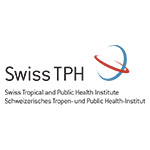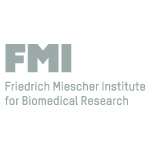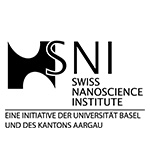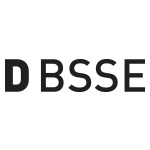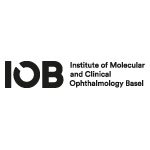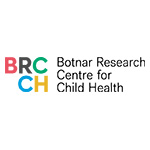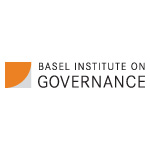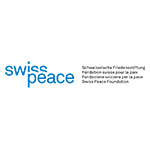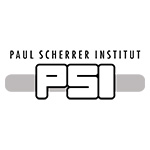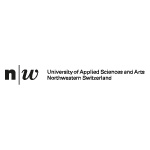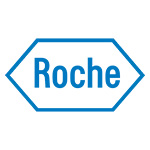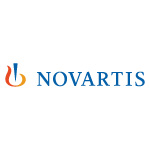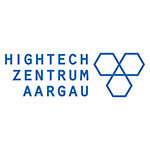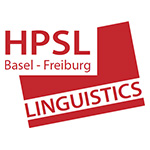Partner Institutions in the Basel Region
Hospitals and Clinics
The close cooperation between the University of Basel and the hospitals and clinics in the Basel region leads to a quick and efficient transfer of basic scientific discoveries into medical practice; and at the same time makes findings and data from everyday clinical practice usable for research and innovation. The departments of the Faculty of Medicine and the Department of Pharmaceutical Sciences of the Faculty of Science play a key role in organizing and promoting (bio-) medical research.
The University Hospital Basel is one of Switzerland's leading medical centers with high internationally recognized standards. The close cooperation with the University of Basel, globally leading life science companies in Basel and the international networking guarantee interdisciplinary treatment concepts and innovations in all medical disciplines at the highest level.
With its medical focus, the University Children's Hospital Basel has achieved national and international importance. It offers a perinatal center, thoracic and pulmonary center, pediatric clinical pharmacology, stem cell transplant center, bone, soft tissue and tumor surgery, and neurosurgery/spine center.
The University Psychiatric Clinics (UPK) offer comprehensive psychiatric and psychotherapeutic services for adults, children and adolescents and have an Walk-in acute outpatient clinic in the city center, a Crisis Intervention Station (KIS) and a department for psychosomatic child and adolescent psychiatry in the University Children's Hospital Basel.
The University Geriatric Medicine Felix Platter conducts research projects and studies in the field of gerontology and continuously improves diagnostics and therapy offers for the health and well-being of older people.
Together with the University Hospital Basel, the St. Claraspital runs the University Center for Gastrointestinal and Liver Diseases Clarunis and has established a tumor center.
The University Center for Dentistry Basel (UZB) serves the cantonal, regional and supraregional dental care of children and adults. It is the center of excellence for dentistry and makes a valuable contribution to the health of the people in the region and to Basel as a life science location.
The Kantonsspital Baselland has its own university clinics with research departments at its Bruderholz and Liestal sites. It cooperates with the Medical Faculty of the University of Basel and has national and international networks. The Laufen site offers a pain clinic as well as inpatient rehabilitation.
As a large center hospital, the Kantonsspital Aarau offers a medical range from primary care to highly specialized medicine in ten treatment areas and is involved in numerous research projects.
Associated Institutes of the University of Basel
The University of Basel has a special relationship with four institutions: the Swiss Tropical and Public Health Institute, (Swiss TPH), the Friedrich Miescher Institute for Biomedical Research (FMI), the Swisspeace research institute, and the Basel Institute on Governance, which collaborate intensively and to mutual benefit with various faculties and research groups at the university as associated institutes.
Swiss Tropical and Public Health Institute (Swiss TPH)
The Swiss Tropical and Public Health Institute (Swiss TPH) is a world-leading research institution for global health with the core areas of parasitology, infection biology, health systems and public health. Research at Swiss TPH is interdisciplinary and covers a very broad spectrum. An important topic is research on poverty-related diseases such as malaria, sleeping sickness or tuberculosis. Current research projects are investigating the effects of pesticides in South Africa on children's health, the level of air pollution in Tehran, or the impact of the smoking ban on the health of employees working in the Swiss hospitality industry. Topics such as cell phone radiation and its effects on children, or the heatwave summer of 2018 and its consequences are also being researched.
Friedrich Miescher Institute for Biomedical Research (FMI)
The Friedrich Miescher Institute for Biomedical Research (FMI) is a world-class biomedical research institute conducting basic research in molecular biology. Core topics of FMI are neurobiology, quantitative biology and epigenetics. FMI is affiliated with the University of Basel and the Novartis Institute for BioMedical Research (NIBR).
Swisspeace
Swisspeace is a practice-oriented peace research institute that analyzes armed conflicts and develops strategies to improve the prevention of conflicts and their peaceful transformation. Swisspeace conducts innovative research, shapes discourses on international peace policy, and develops new methods of peacebuilding. It provides platforms for dialogue between peacebuilders, researchers, and practitioners in the fields of peacebuilding, humanitarian aid, development cooperation, and security, as well as between parties to conflicts. Swisspeace has organized the annual Basel Peace Forum since 2017.
Swiss Centre for Applied Human Toxicology (SCAHT)
The Swiss Centre for Applied Human Toxicology (SCAHT) provides expert advice and services in the field of regulatory toxicology to the Swiss authorities, the media, the public and third parties. The Centre promotes research in applied human toxicology and supports the exchange of information and data between the different toxicological disciplines. The SCAHT is funded by the Swiss Confederation and supported by the Universities of Basel, Geneva, Lausanne and the FHNW School of Life Sciences.
Basel Institute on Governance
The Basel Institute on Governance is an independent, non-profit center of excellence working globally to prevent and combat corruption and provide assistance in building strong governance structures. It conducts anti-corruption research to develop and implement future strategies. Project topics include asset recovery assistance, anti-corruption through the International Centre for Collective Action (ICCA), compliance and corporate governance advisory and crisis management, public finance management (PFM) technical assistance, and multidisciplinary intelligence to combat financial crime in the illegal wildlife trade.
Environment and Region
The University of Basel is closely networked with numerous institutions in the city of Basel and the surrounding cantons. It maintains research cooperations and is also a co-founder of various institutions. The spectrum of scientific exchange and cooperation ranges from archaeological, natural science, linguistic and medical topics to the pharmaceutical industry and various departments of the Northwest University of Applied Sciences.
Department of Biosystems Science and Engineering (D-BSSE)
In the Department of Biosystems Science and Engineering (D-BSSE), research is conducted into the design and programming of complex biological systems from the nanoscale to whole organisms. The goals are the translation of research results into biomedical and industrial applications as well as the development of new processes and products in the biotech, chemical and pharmaceutical industries. Basel's location as a center of life sciences in Europe enables collaboration with hospitals, industry and other academic partners in the fields of Personalized Medicine, Molecular System Engineering and Data Science.
Argovia Professorships
The canton of Aargau has been supporting the Swiss Nanoscience Institute (SNI) at the University of Basel with annual grants since 2009 through the Argovia Professorships. This innovative form of public-public partnership supports excellent basic research and gives industry direct access to cutting-edge technology. The aim is to translate world-class research results at the SNI into marketable products.
Vindonissa Professorship for Provincial Roman Archaeology
The Vindonissa Professorship of Provincial Roman Archaeology was founded by the University of Basel together with the Canton of Aargau and is part of the Department of Classical Studies at the University of Basel. The professorship also collaborates with the natural science areas of the Integrative Prehistoric and Archaeological Science (IPAS) of the Department of Environmental Sciences. The main focus is on the Roman sites in the canton of Aargau with the settlements of Vindonissa and Augusta Raurica (Kaiseraugst).
Paul Scherrer Institute (PSI)
The Paul Scherrer Institute (PSI) is the largest research institute for natural and engineering sciences in Switzerland and conducts cutting-edge research in the fields of matter and materials, man and health, and energy and the environment. It develops sustainable solutions for central questions from society, economy and science through basic and applied research.
Hightech Zentrum Aargau
The Hightech Zentrum Aargau is the point of contact for SMEs interested in the latest technology and seeking advice on projects, digitization or professional exchange. The center focuses on innovation consulting, nanotechnology and energy technology.
University of Applied Sciences and Arts Northwestern Switzerland
The University of Applied Sciences and Arts Northwestern Switzerland (FHNW) consists of nine universities located at the main campuses in Basel, Muttenz, Brugg-Windisch and Olten. Its researchers conduct application-oriented research and development and promote the transfer of research results into practice. There are numerous interactions between the FHNW and the University of Basel; for example, the joint Institute for Educational Sciences was founded, there are numerous joint research projects in the life sciences, and a cooperation agreement has been reached regarding doctoral studies.
Institute of Molecular and Clinical Ophthalmology Basel
The Institute of Molecular and Clinical Ophthalmology Basel (IOB) was founded in 2018 by the University of Basel, the University Hospital Basel and Novartis. The IOB was established as a foundation to ensure academic freedom for researchers. Basic researchers and clinicians work hand in hand to advance the understanding of vision and its diseases and to develop new therapies for vision loss. The focus is on retinal diseases such as macular degeneration, glaucoma and myopia, which is on the rise worldwide.
Botnar Research Centre for Child Health
The Botnar Research Centre for Child Health (BRCCH) was founded by the University of Basel and ETH Zurich and has been in operation since 2019. BRCCH's vision is to establish itself as a leading institution for application-oriented cutting-edge research and to improve the health and well-being of children and adolescents around the world through its projects. The focus is on digital solutions with a focus on artificial intelligence and innovation in pediatrics.
Hoffmann-La Roche
Hoffmann-La Roche, headquartered in Basel, is one of the world's largest pharmaceutical companies and, with 13,600 employees from over 100 nations, is one of the most important private employers in Switzerland. The biotech company offers new cancer therapies, develops targeted therapies in combination with appropriate diagnostics and promotes active health management. The focus in research and development is on the specialties of oncology, virology, neurology and transplantation medicine.
Novartis AG
Novartis AG was formed in 1996 by the merger of Ciba-Geigy AG and Sandoz AG and is one of the largest pharmaceutical companies in the world. The company's core competence is research and development of novel medicines. Basel is home to the corporate headquarters as well as the headquarters of the global Innovative Medicines Division. Novartis promotes its scientific expertise and innovative capacity through collaborations with hospitals, companies and academic institutions and has, for example, founded the Institute of Molecular and Clinical Ophthalmology Basel (IOB) together with the University of Basel and the University Hospital Basel. At the Novartis Institute for Biomedical Research (NIBR), interdisciplinary teams are working on powerful new technologies to develop novel treatments. Within NIBR, researchers at the Novartis Institute for Tropical Diseases (NITD) are working on compounds to combat tropical infectious diseases.
Idorsia Pharmaceuticals Ltd.
Das Pharmaunternehmen Idorsia Pharmaceuticals Ltd, ein Spin-off von Actelion, hat seinen Hauptsitz in Allschwil und betreibt Wirkstoffforschung, Entwicklung und Herstellung von pharmazeutischen, biologischen und diagnostischen Produkten. Idorsia entwickelt Medikamente für die Therapiebereiche Zentralnervensystem, Herz-Kreislauf- und Immunkrankheiten sowie seltene Krankheiten.

